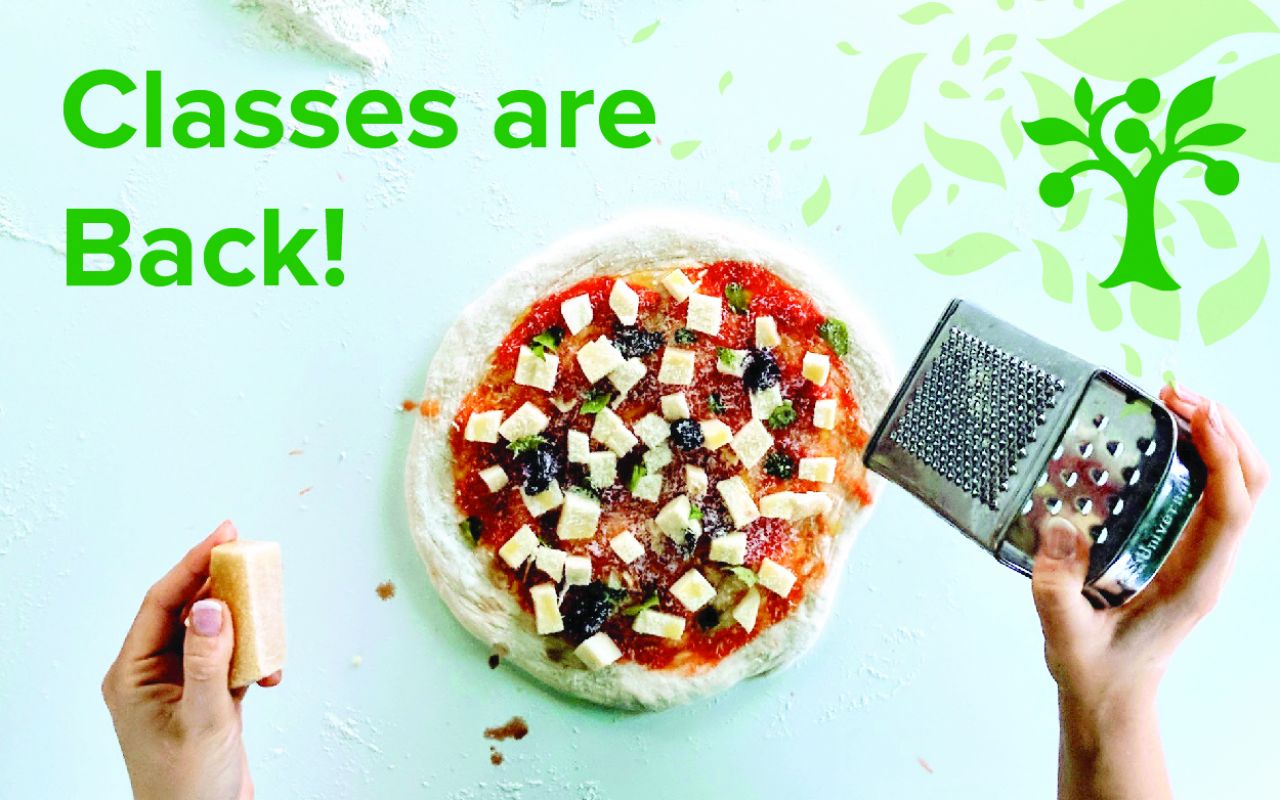 Classes return to Seward Community Co-op on Sept. 4. Enjoy opportunities—some free—to learn a new skill or dig into an interesting topic with an instructor from the community.
Classes return to Seward Community Co-op on Sept. 4. Enjoy opportunities—some free—to learn a new skill or dig into an interesting topic with an instructor from the community.
Sign up now, as some classes are selling out fast. Click the links below to register.
Nourish 101: Cauliflower Curry Soup – SOLD OUT
Tuesday, Sep. 4, 6:30-7:30 p.m.
Friendship store
Nourish 101 classes feature basic scratch-cooking techniques and recipes that feed a family of four for under $10.
Jessica Brown, Jess Delicious
FREE
Develop and Maintain a Levain Culture: Flour, Water and Time – SOLD OUT
Wednesday, Sep. 5, 6-7 p.m.
Franklin store
Learn how to develop and maintain a levain culture (a type of sourdough starter). Starter will be available for students to take home.
Steve Horton, Baker’s Field Flour & Bread Head Miller and Baker
$6/$5 co-op owners
Intro to Soap Making – SOLD OUT
Wednesday, Sep. 12, 6–8 p.m.
Franklin store
Learn soap making from one of Seward Co-op’s most popular soap vendors! Each student receives an instruction manual and takes home five bars of soap ($25 retail).
John Hanson, Seward Soap
$30/$25 co-op owners
Okonomiyaki: A Savory Japanese Pancake
Thursday Sep. 13, 6-8 p.m.
Franklin store
When life gives you cabbage, make Okonomiyaki— a delicious pancake filled with cabbage, meat and seafood.
Koshiki Yonemura and Benjamin Smith, Tanpopo Studio
$35/$30 co-op owners
Co-op Kids: Pizza Party! – SOLD OUT
Saturday, Sep. 15, 11 a.m.-noon
Friendship store
Kids will learn about the plants, flavors and uses of herbs and spices common in Minnesota. Ages 5-12.
Instructors from Midwest Food Connection
FREE
Ayurveda for Healthy Digestion
Thursday, Sep. 20, 6-7:30 p.m.
Friendship store
Many diseases originate from our gut. This class will focus on the concept of Agni, Ayurvedic diet and Ayurvedic home remedies for digestive issues and more.
Vanashree Belgamwar
$12/$10 co-op owners
The Skinny on Fat
Tuesday, Sep. 25, 6-8 p.m.
Friendship store
Confused about fat? Culinary nutritionists Jenny Breen and Jesse Haas are teaming up to tackle this controversial topic. We’ll also prepare and enjoy recipes featuring cooking oils, nuts, seeds and other fat-rich foods.
Jenny Breen and Jesse Haas
$30/$25 co-op owners
Honest In Trade: A Conversation about Supply Chain Sustainability
Wednesday, Oct. 3, 6-7:30 p.m.
Franklin store
Learn about Once Again Nut Butter’s social justice programs, employee ownership model, supply chain transparency and their dedication to the planet.
Gael B. Orr, Once Again Nut Butter
FREE
A Perfect Bowl of Autumn Soba Noodles
Thursday, Oct. 4, 6–8 p.m.
Franklin store
Have you made Japanese Dashi stock before? This tried and tested recipe is from Tanpopo Noodle Shop, a Japanese restaurant that was once located in Lowertown St. Paul.
Koshiki Yonemura and Benjamin Smith, Tanpopo Studio
$35/$30 co-op owners
Intro to Soap Making
Wednesday, Oct. 10, 6–8 p.m.
Franklin store
Learn to make soap from a Seward Co-op vendor. Each student receives an instruction manual and takes home five bars of soap ($25 retail).
John Hanson, Seward Soap
$30/$25 co-op owners
Nourish 101: Farro with Tomato and Feta
Tuesday, Oct. 16, 6:30-7:30 p.m.
Friendship store
We’ll learn how to cook with farro, one of many delicious and affordable ingredients you can purchase at the bulk sale Oct. 25.
Jessica Brown, Jess Delicious
FREE
Nourish 101: Fermenting Veggies with Pickle Witch
Thursday, Oct. 25, 6–8 p.m.
Friendship store
Learn the basics of fermenting in a hands-on workshop that will teach you to turn almost any vegetable into a nutritious and delicious fermented pickle. Bring your own container to take your ferment home!
L. Kling, Pickle Witch
FREE
Festive Fermented Beverages
Thursday, Nov. 1, 6–8 p.m.
Franklin store
Learn the basics of making live, fermented beverages. By capturing and propagating the ginger bug, participants can make fizzy juice, soda, alcohol and vinegar.
Monarda Thrasher, Tea for the People, LLC
$15/$12 co-op owners
Intro to Soap Making
Wednesday, Nov. 7, 6–8 p.m.
Franklin store
Learn soap making using the cold process method. Each student receives an instruction manual and takes home five bars of soap ($25 retail).
John Hanson, Seward Soap
$30/$25 co-op owners
Nourish 101: Thanksgiving Sides
Tuesday, Nov. 13, 6:30-7:30 p.m.
Friendship store
Nourish 101 classes feature basic scratch-cooking techniques and recipes that feed a family of four for under $10 ($15 with meat). Learn how to feed your family economically and still have leftovers!
Jessica Brown, Jess Delicious
FREE
Important Class Information
Walk-ins are welcome as space allows, but Seward Co-op may cancel classes if there are fewer than three preregistered attendees. In this case, participants will be notified and given a full refund. Payment must be made at time of registration. To ensure a refund, cancellations must be made 48 hours before the class date.